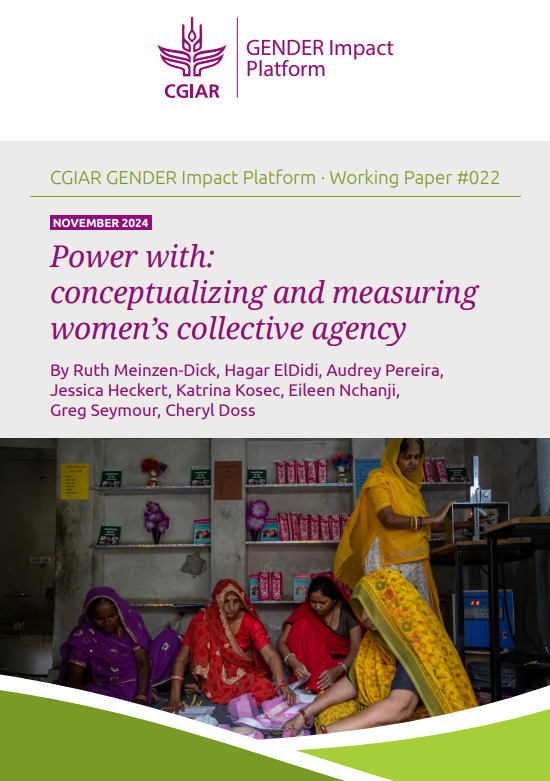Power with: conceptualizing and measuring women’s collective agency: CGIAR GENDER Impact Platform Working Paper #22
Abstract
Collective agency, or power with, is fundamental to feminist approaches to empowerment. Yet despite the growth in measures of women’s empowerment in recent years, and the prevalence of group-based approaches to foster empowerment, conceptualization and empirical measurement of collective agency remains a critical gap. This paper attempts to bridge this gap through a literature review, expert opinions and the experience of researchers working with practitioners who are mobilizing women’s groups in four case studies. We develop a conceptual framework based on Kabeer’s (1999, 2002) framework of resources, agency and achievements. We then use that framework for mapping key concepts related to collective agency, including collective efficacy, collective action, collective achievements, and tangible and intangible resources (including social capital). We discuss the importance of considering these key concepts at the individual and at the collective levels. We illustrate potential methods and challenges of operationalizing these concepts through four case study projects in India, Guatemala, Uganda and Nigeria, and discuss the challenges of developing a common instrument to measure collective agency, in theory and in practice.
With examples of how key concepts related to collective agency have been operationalized, the conceptual framework offers guidance for moving beyond simplistic notions that forming groups automatically empowers women. It provides a way to study how different types of groups effectively help women achieve individual and collective goals. Combined with individual respondent characteristics, group-level measures can help researchers and practitioners understand how women can exercise voice and agency in different types of groups. The group-level measures also examine how group composition, organizational structures and decision-making processes impact collective agency and effectiveness.

